The history of the petroleum industry started with a chance meeting at Dartmouth College. It set into motion a chain of events that led to the Pennsylvania oil rush and the creation of the American oil industry.
George Bissell gets credit as the father of the American oil industry, but other New Englanders deserve it as well.
The cast of characters includes a former high school principal from New Hampshire, a Vermont country doctor, a Maine lawyer, a Yale chemist and a railroad conductor on the New York, New Haven and Hartford Railroad.
They made history — of the petroleum industry. So often it’s associated with Texas, Oklahoma and Alaska, but it never would have happened without Yankee ingenuity and capital.
Rock Oil
George Bissell was born Nov. 8, 1821 in Hanover, N.H., the son of Nancy Wemple and Isaac Bissell, a fur trader who died when he was 12. He worked his way through Dartmouth College, then knocked around as a teacher, journalist and school administrator, studying languages and the law in his spare time.
By 1853 he had moved to New York City, where he practiced law at 14 Wall Street. He had a partner, Harvard-trained Jonathan Eveleth. Eveleth came from colonial New England stock. Born in New Gloucester, Maine, people described him described as “sage, cautious and tenacious.” He, too, had worked as a school principal, in Norway, Maine, after graduating from Bowdoin College.
Seneca Oil
George Bissell returned to Hanover in the fall of 1853 to visit his mother. While there, he stopped by Dartmouth. In the office of Dr. Dixi Crosby, head of the medical school, he saw a bottle of rock oil.
The oil was then marketed as a patent medicine called ‘Seneca Oil,’ after the local Indians who used it to heal deafness, toothaches and rheumatism. Many Americans believed the Indians had a deep knowledge of natural healing.
Crosby’s son and nephew would then play a big part in starting the petroleum industry. His nephew, Francis Beattie Brewer, had brought the rock oil to him at Dartmouth. Brewer, a physician born in Barnet, Vt., moved to Titusville, Pa., to join his father’s lumber company. Oil seeped out of the ground from oil springs on the lumber company property. Sawmill workers used some of it to lubricate the machinery. They soaked the oil that leaked out of the ground in blankets, and then drained the blankets over barrels.
A Hard Sell
Brewer saw immense potential for oil from the ground. His enthusiasm spread to his cousin, Bissell’s son, Albert, and to Dixi Crosby himself. But not to George Bissell. It took months for Albert Crosby to persuade Bissell to finance a trip to Titusville to inspect the oil springs.
By then, Bissell saw how they could market oil to lubricate the machinery of the burgeoning Mechanical Age. Power looms in the textile industry and the steam printing presses needed better lubricants than what they had — lard.
Bissell also thought rock oil could replace expensive whale oil, coal oil or dangerous camphene as a lighting fluid.
If the cousins, Crosby and Brewer, came back with a favorable report, he and Eveleth would organize a petroleum company. Then they would launch it on the New York stock market.
A Golden Vision
The cousins returned from Titusville with a glowing report. Brewer recalled how they had “stood on the circle of rough logs surrounding [one spring] and saw the oil bubbling up, and spreading its bright and golden colors over the surface, it seemed like a golden vision.”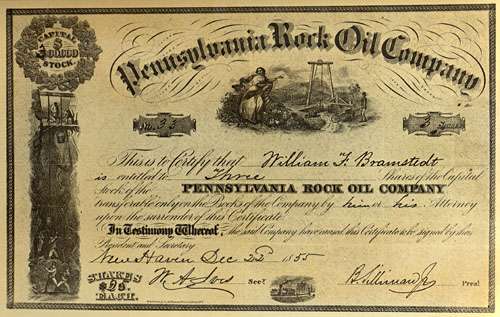
In October 1854 Bissell and his partner Eveleth visited Titusville, stopping in New Haven first. There they met James M. Townsend, a speculator living in a boardinghouse.
In November, Bissell, Eveleth and Brewer started a joint stock enterprise, the Pennsylvania Rock Oil Company. They then bought 200 acres of the Hibbard farm for $5,000.
Benjamin Silliman
Pennsylvania Rock Oil Co. stock did not sell.
They were getting oil by digging pits and ditches, then pumping the oil and water into vats using water power from a sawmill. They sold the oil to patent medicine companies.
Brewer’s father warned his son away from Eveleth and Bissell, calling them “a couple of ‘sharpers.” Brewer ignored his advice, but other investors stayed away.
Except for James Townsend, the New Haven boardinghouse dweller. He agreed to drum up interest among New Haven investors. But he told them he couldn’t do it until they got a scientific report on the commercial value of petroleum.
During the 19th century, American scientific thought was centered at Yale College. Yale chemistry professor Benjamin Silliman was the country’s preeminent chemist. His father, Benjamin Silliman Sr., was also a Yale chemistry professor who developed a process that enabled the commercial production of kerosene.
“We must have him,” Eveleth said.
The $562.08 Report
Silliman, who earned little as a Yale college professor, agreed to write a report on the commercial potential of rock oil for $562.08. The company then forwarded a few barrels of petroleum to the chemist.
Silliman concluded petroleum could be used not just as a lubricant, but as a lighting fluid. He wrote, “the Oil of your Company’ has ‘a much higher value as an illuminator than I had dared to hope.” He arrived at the happy conclusion,
…it appears to me that there is much ground for encouragement in the belief that your company have in their possession a raw material from which, by simple and not expensive process, they may manufacture very valuable products.
The Report on the Rock Oil is probably the most famous consulting report ever produced.
History of the Petroleum Industry
They were not quite on their way. Silliman’s report attracted investors, but it didn’t tell them how to get enough oil.
James Townsend was elected company president. In 1857, the idea of boring an artesian well was broached, but the board couldn’t agree. Some members, led by Townsend, proposed drilling a well at their own expense. They would then pay the parent company 12 cents a gallon for the oil produced. The board accepted that proposal.
Townsend had become friendly with a garrulous fellow who lived at the same New Haven boardinghouse as he. Col. Edwin Drake was not a colonel but a former conductor on the New York, New Haven and Hartford Rail Road. Townsend hired Drake to figure out how to bore an oil well. His main qualification: He had a railroad pass that let him get to Titusville for free.
The announcement of their intention provoked mirth and ridicule, and “Col. Drake” became “Crazy Drake.”
For two-and-a-half years, Drake toiled in Titusville until Aug. 28, 1659. On that day he famously struck the first oil well in America.
Oil Rush
Drake’s gusher touched off an oil rush that rivalled the quest for California gold. His achievement set off a wave of exploration and investment that established petroleum as a major industry.

The Titusville area after Drake’s well was bored. Photo courtesy Pennsylvania Historical and Museum Commission, Drake Well Museum.
Eveleth would soon die of kidney disease, but Bissell spent hundreds of thousands of dollars buying and leasing land in the Titusville area.
Bissell wrote to his wife:
We find here an unparalleled excitement…The whole population is crazy almost … I never saw such excitement. The whole western country are thronging here and fabulous prices are offered for lands in the vicinity where there is a prospect of getting oil.
The Rest of the Story
The men who started the petroleum industry met separate fates.
James Townsend had taken the biggest financial risk. He was bitter. “The whole plan was suggested by me, and my suggestions were carried out,” he wrote. “The raising of the money and sending it out was done by me.”
Brewer served in the Civil War, went into politics and became director of a New York Insane Asylum.
Drake made bad business decisions and gambled his money away. He ended up a poor and ailing old man, finally granted an annuity of $1,500 in 1872 by Pennsylvania.
Bissell became a wealthy philanthropist. One of his donations was for a gym at Dartmouth. He insisted that the gym include six bowling alleys, “in remembrance of disciplinary troubles into which he had fallen as an undergraduate because of his indulgence in this sinful sport.”
This story last updated in 2021.
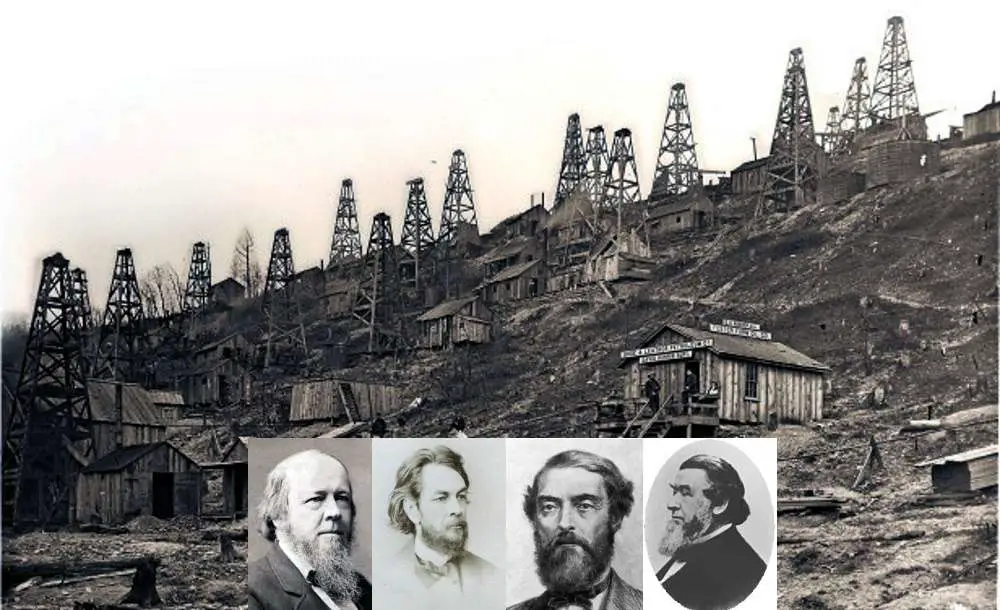
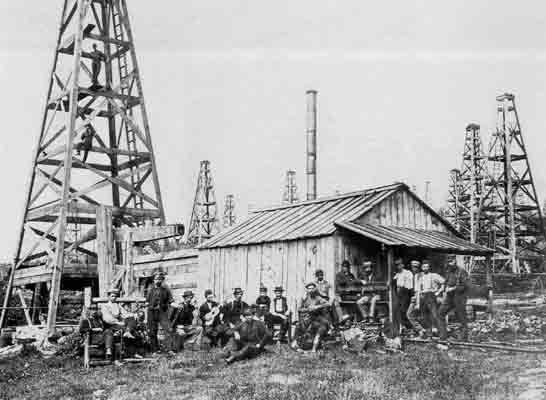

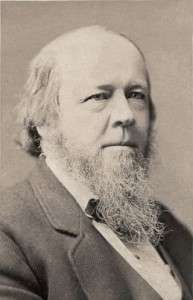
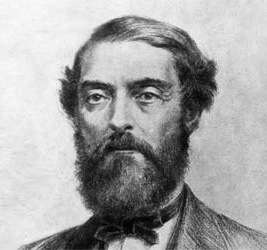

4 comments
[…] How the History of Petroleum Was Made in New England […]
[…] with a bachelor’s degree in mathematics. In 1930, she earned a master’s in mathematics from Yale, the first woman to do so. Four years later, she got her Ph.D. in mathematics from Yale, one of […]
[…] the late 1800s, industrialization was booming and fast shipping was a key to success. A town without a railroad faced big competitive […]
[…] To defend his conclusion, Silliman founded the American Journal of Science. Established as one of the preeminent scientists of his age, he was the first person to distill petroleum. His son, Benjamin Silliman, Jr., was also a chemistry professor at Yale and was instrumental in developing the petroleum industry. […]
Comments are closed.